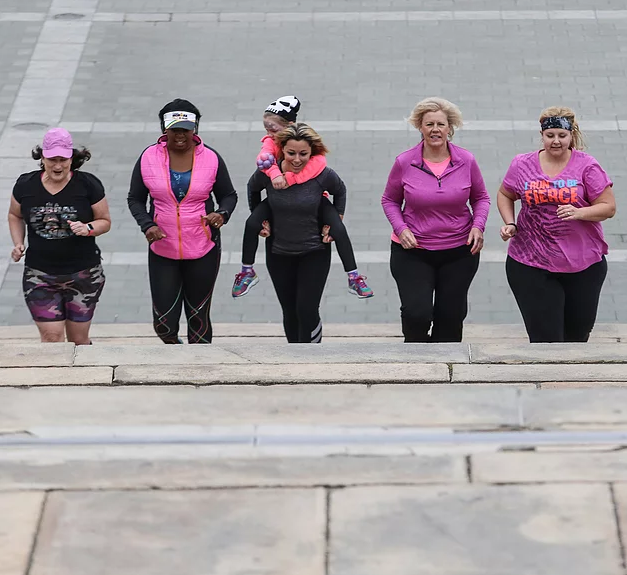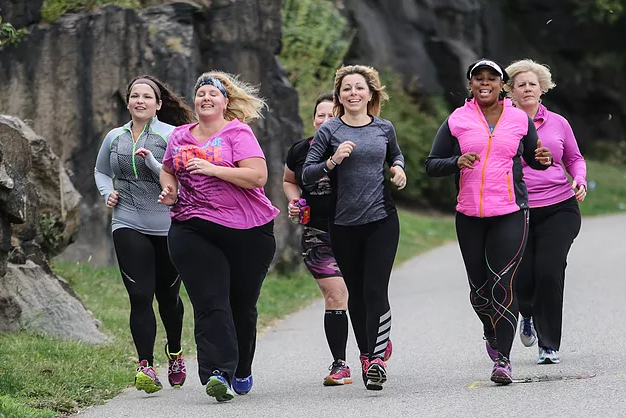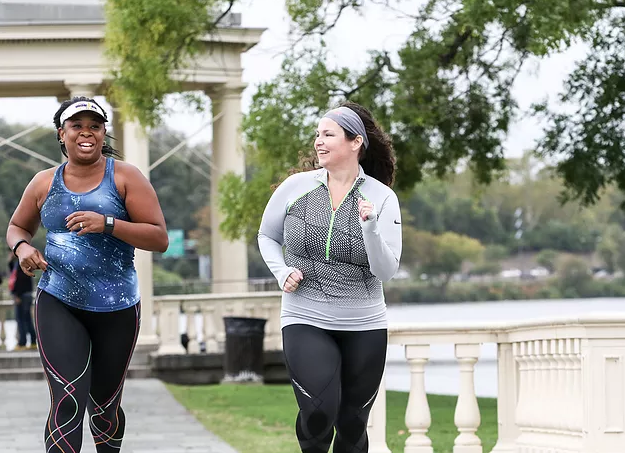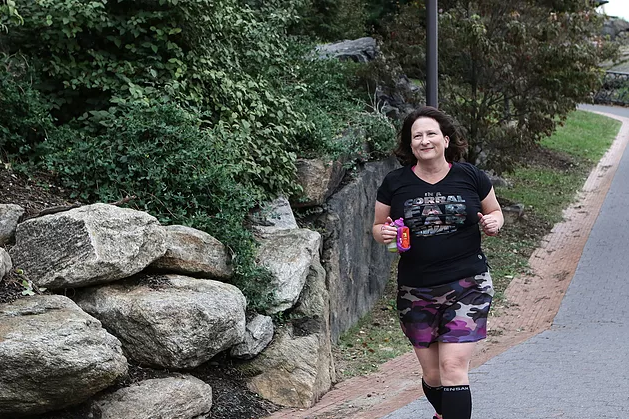[vc_row][vc_column][vc_column_text]
 Running Your First 5K
Running Your First 5K
Do you think running sucks, or that maybe you’re too out of shape to do it – but somehow you’re still drawn to the idea of being a runner? That all those people posting their races on Facebook are a little crazy, but there’s still something intriguing about the whole thing? I have good news for you: You are not alone.
Running is actually a lot easier than you might think, and almost anyone can do it. In fact, if you can walk for 30 minutes straight, you’re ready to try running! All it takes is the right approach – both physically and mentally – and you’ll be calling yourself a runner in no time.

Start With 30 Seconds
Instead of running as far as you can and then walking, start with small, manageable intervals. Taking a walk break before your legs are completely exhausted gives them a chance to recover before they need to run again – allowing you to go further and faster overall, and with less chance of injury. It may sound counter-intuitive, but it works!
Try this: After a 5 minute walking warmup, run at a comfortable (think jogging) pace for 30 seconds, then briskly walk for 90 seconds to recover. Repeat for 10 rounds. Then walk for a few minutes to cool down.
Repeat your workout three times per week until it feels easy – then add 15 or 30 seconds to your running intervals and build up from there. When you’re ready for more challenge, do more rounds, and/or decrease the length of the walking recovery.
Consistency Gets Results
It takes time to build up the stamina to run, and every workout will help you get a little bit closer to your goal. Some of those runs will feel better than others, and that’s completely normal! You’ll have days when you feel like a rockstar, and others when you feel like you’re struggling. But it is all moving you forward and building your running skills. Make sure to get out there three times a week, even if it’s just for 15 minutes. Stay consistent and you’ll see results.

Build Up Slowly
Even though it’s really exciting when you first start, try to hold yourself back from doing too much too soon. To avoid injury, allow at least two weeks at each level before you increase running time or decrease walking time. Your legs will thank you later.
Don’t Worry About Your Pace
When you first start running, you might not be fast. Correction: you will almost definitely not be fast. After awhile, you’ll get faster. But speed is not the only thing that matters in running (in fact, I’d argue it’s one of the least important). Focus on what you enjoy about running and remember that first place and last place in any race both run the same distance!
If you’d like a free 6-week training plan, head on over to NotYourAverageRunner.com to get one!

Jill is a running coach, personal trainer, and author, who wants to live in a world where everyone is free to feel fit and fabulous at any size. She coaches curvy women on everything from starting to run to completing a marathon. She’s also the author of Running With Curves, Why You’re Not Too Fat to Run, and the Skinny on How to Start Today, and Not Your Average 5K, A Practical 8-Week Training Plan for Beginning Runners, both available on Amazon.com.
[/vc_column_text][/vc_column][/vc_row]
